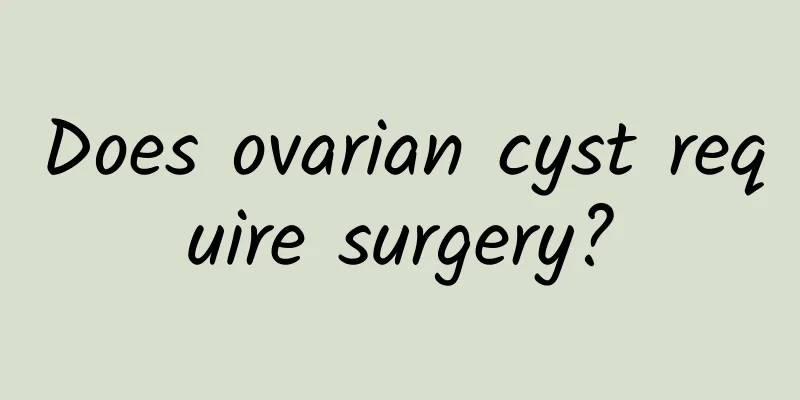I believe many women want to know how to treat habitual miscarriage?

|
If a woman has frequent miscarriages, which is medically known as habitual abortion, in order to achieve effective treatment, she should first choose immunosuppressants, and then inject progesterone. If these methods are still not effectively controlled, she can also choose to suture the cervix, which can effectively reduce the occurrence of harm. Habitual miscarriage is actually very common in life, and the occurrence of this disease can cause serious harm to women's health and even bring a lot of pain. However, this phenomenon must be actively treated, otherwise miscarriage will occur again in the future. So I believe many women want to know how to treat habitual miscarriage? |
<<: What are the causes of habitual miscarriage? See what the doctor says
>>: Can habitual abortion be cured? Doctors say prevention is the key
Recommend
What are the key points to pay attention to in the care of common ectopic pregnancies?
In our lives, many female compatriots will have e...
If you have vaginitis, your leucorrhea will have many abnormalities
If you have vaginitis, your vaginal discharge wil...
Eight Chinese herbal medicine prescriptions are effective in treating ovarian cysts
Traditional Chinese medicine believes that the oc...
How can women self-diagnose severe cervical erosion? Four major symptoms of severe cervical erosion
In life, cervical erosion, a common gynecological...
Is right ovarian cyst painful?
Is right ovarian cyst painful? If the right ovari...
What are the symptoms of uterine fibroids? Will uterine fibroids cause menstrual disorders?
Uterine fibroids are a disease that women should ...
Gynecological diseases Precursors of uterine fibroids
Uterine fibroids are one of the most common benig...
What to eat after exercise to lose weight quickly? 3 types of food supplement secrets you must know!
When you eat after exercise, your stomach and int...
Introduction to the examination method of menopause
Menopause is an indispensable thing for women. Wh...
Walking puts pressure on muscles, causing soreness! 8 tips to exercise your muscles and joints to lose weight easily
If you want to lose weight healthily, exercise is...
Everyone should be aware of the routine examination methods for ectopic pregnancy
Patients with ectopic pregnancy usually do not un...
How much does superconducting visual painless abortion cost?
How much does superconducting visual painless abo...
Do you know the complications of abortion?
Do you know about the complications of abortion? ...
What are the early symptoms of ovarian cysts?
What early symptoms of ovarian cysts do you know?...
How to prevent recurrence of cervical erosion
How to prevent the recurrence of cervical erosion...









